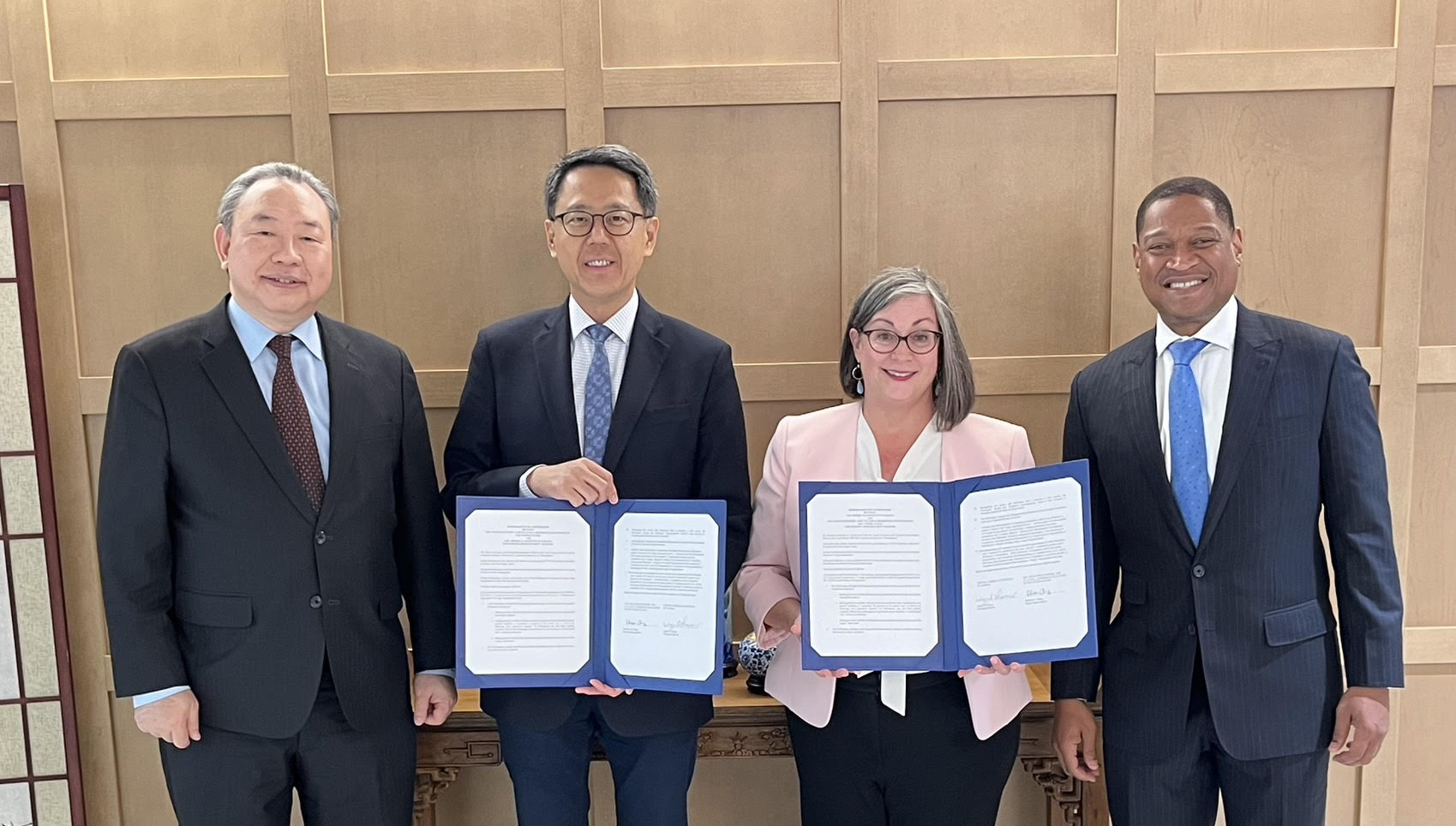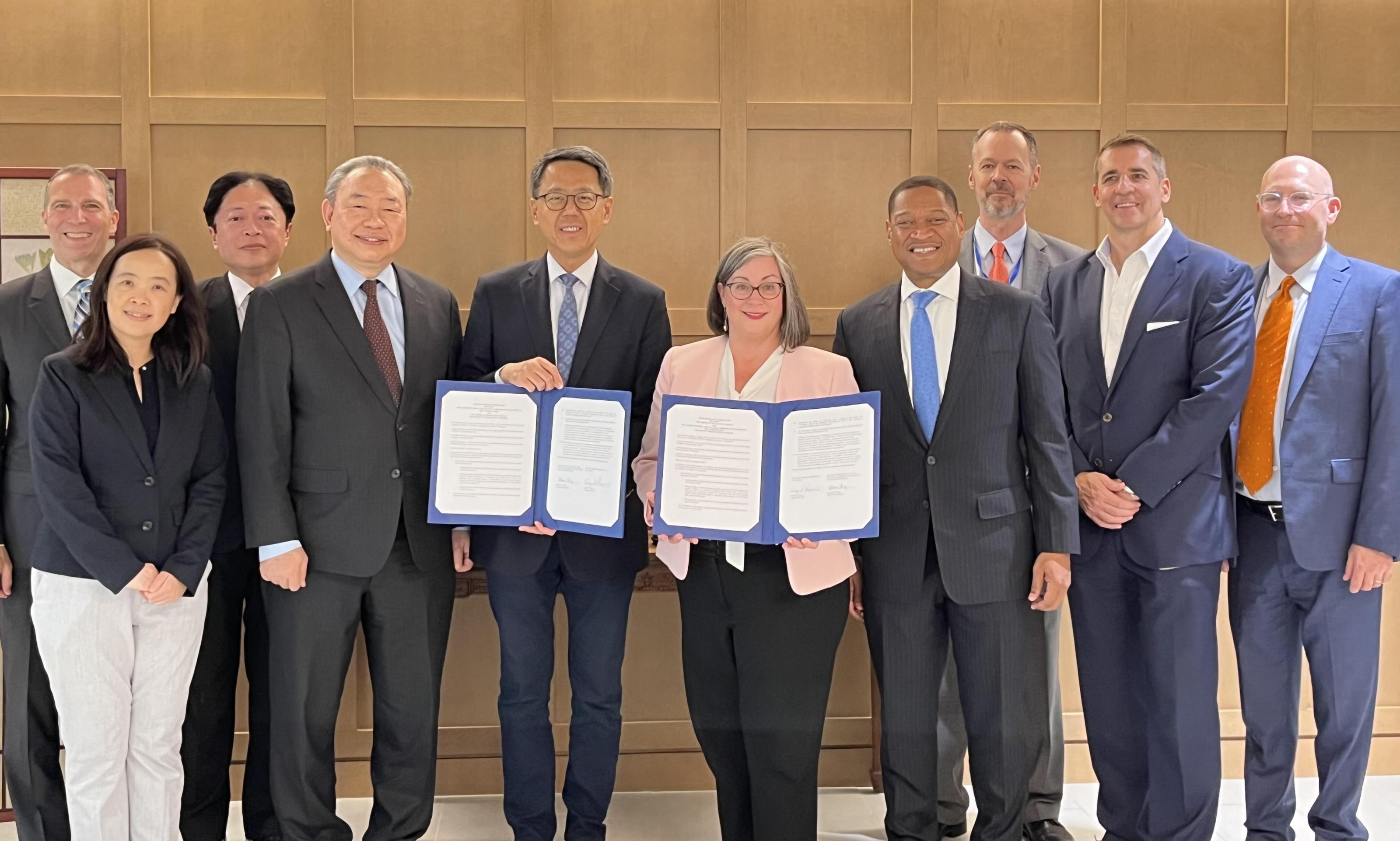Taiwan and the US concluded “Memorandum of cooperation concerning food security matters” to promote public-private cooperation and ensure a stable supply of grains
On June 3, 2024 (US EST), Johnson Chiang, Deputy Representative in the Taipei Economic and Cultural Representative Office in the United States, and Ingrid Larson, managing director of the Washington Office of the American Institute in Taiwan, signed a “Taiwan-US Memorandum of cooperation concerning food security matters”. Relevant officials from both parties attended the signing ceremony. Taiwan and the US will accordingly establish a bilateral mechanism and dialogue platform and, through the public and private sectors, exchange information related to food production and demand. Both sides will also discuss strategies on how to strengthen food security and related trade approaches. The goals are to ensure that Taiwan can access a stable and continuous supply of grains, promote bilateral trade in agricultural products, and ensure food security.
The Ministry of Agriculture (MOA) states that the US is one of the world’s major grain exporting countries. In 2023 Taiwan imported around three million metric tons of soybeans, wheat, and corn from the US, accounting for nearly 40% of Taiwan’s grain and oilseed imports for the year, making the US the top agricultural supplier. Through APEC and other international forums, the MOA has collaborated with the US and other trading partners to collectively promote measures to reduce losses and waste in the food supply chain, shown concern for the impact of climate change on agricultural production, and strengthened cooperation and interactions with the public and private sectors for many years. These are all important tasks to ensure a steady and continuous supply of food.
The MOA emphasizes that, faced with severe challenges including global economic fluctuation, regional military conflicts, and climate change, maintaining a stable supply of food and ensuring national security become even more important for net food importers like Taiwan. Therefore, the MOA has promoted a variety of policies and measures related to food security, including protecting agricultural production resources and environments, developing climate-smart agricultural technology, strengthening programs for agricultural disaster relief and insurance, promoting the sustainable development of agriculture, and strengthening food supply systems. Meanwhile, Taiwan will also continue working with like-minded trade partners to encourage the public and private sectors to enhance cooperation to meet market demands, thus establishing mutually beneficial situations, and building up resilient and secure food supply chains.


